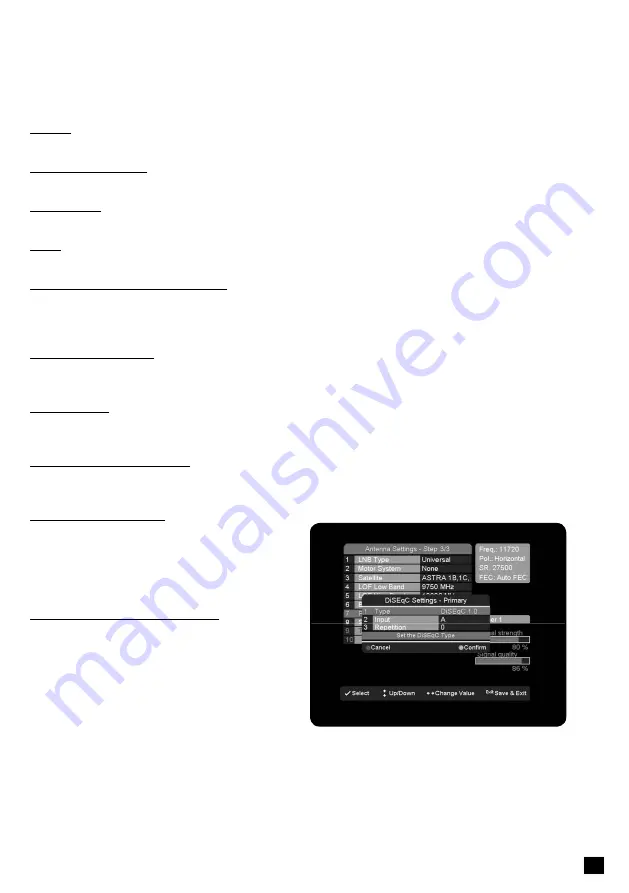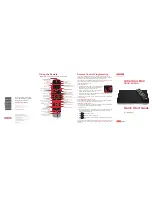
En
13
13
the “Yellow” function key. The receiver will recalculate all positions accordingly.
Satellite
Use this option to select the satellite for which you would like to set the position.
Reference transponder
This option allows you to set which transponder is used as the reference.
Move the dish
Use this option to set the dish movement speed to “Fine” or “Coarse.”
Limits
Use this option to turn on or disable the set limits.
Insert or delete a satellite from the list:
You can add satellites to the list and set their individual settings and position, if using a motorized dish. Use the
color keys on the remote control, as shown at the bottom of the screen, to delete, insert, or set the motorized
position of each satellite.
LOF Low and High Band
The LOF (Local Oscillator Frequency) of the LNB is usually printed on the LNB itself or in its documentation. You
can set the High and Low LOF frequencies to match the LNB here.
Band switching
The receiver uses a 22kHz signal to control the band of the LNB. If you do not know if your LNB supports this
feature, set the option to Auto.
Primary and secondary DiSEqC
You can connect up to two cascadable DiSEqC switches to the receiver. This option allows you to set the type
and input port for each switch.
Channel ID (Unicable only)
This option allows you to select the Unicable channel ID
for the receiver. In a typical Unicable LNB installation,
you are able to connect multiple receivers to a single
LNB, with each receiver set to connect to a different
Unicable channel ID.
LNB Feed (Unicable Monoblock only)
This option allows you to select which feed of a
Unicable Monoblock LNB you want to use for this
receiver.









































